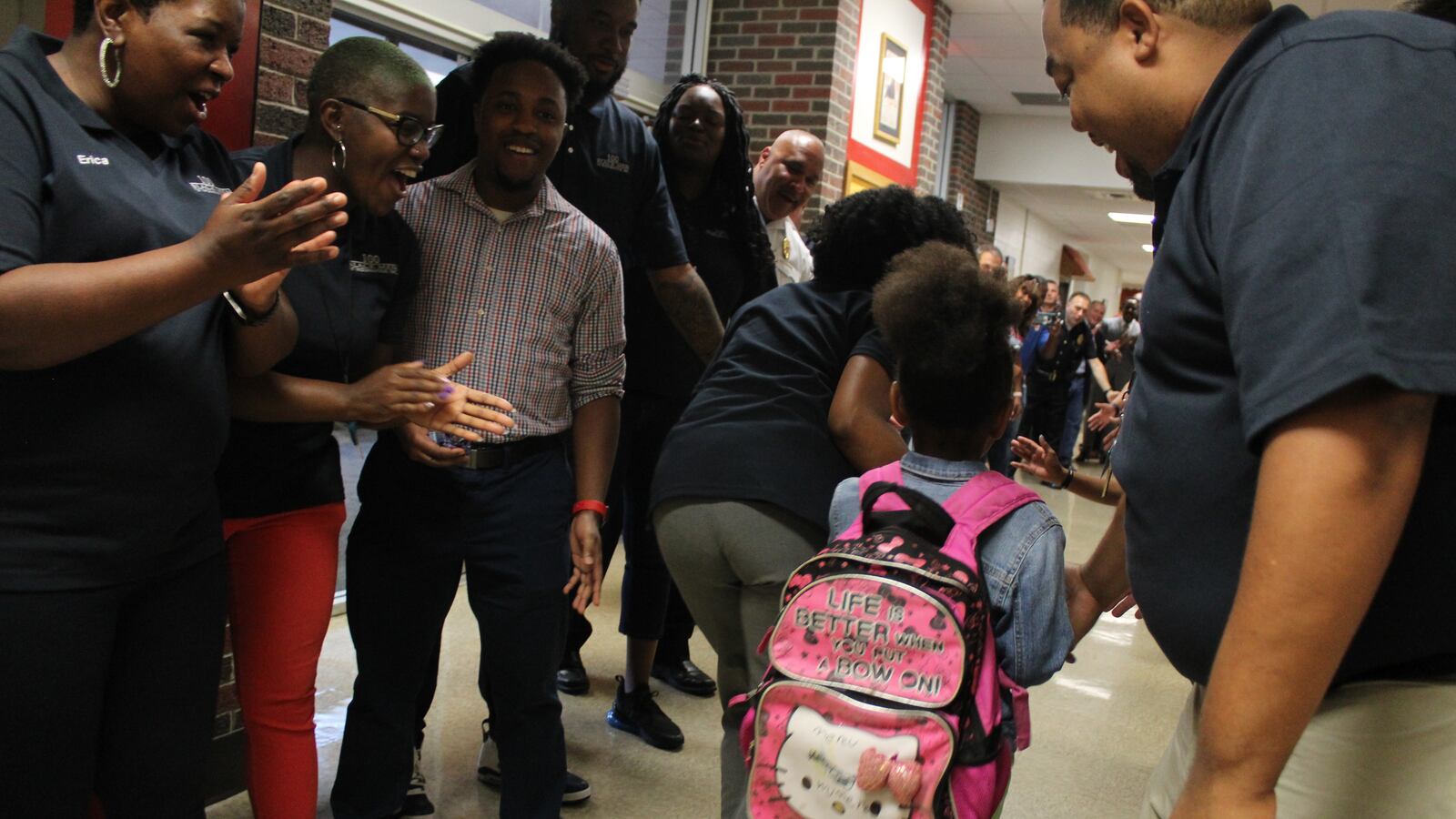Most teachers in Detroit shut down their classrooms Friday, ending another school year that had its share of good and bad times. As parents, educators, and students get ready for summer, many of them are reflecting on the experiences of the past year.
Last week, we asked you to tell us what you’ve learned. Some of you submitted answers to our website, and we talked to some of you in person. Among those who responded were teachers, parents, activists, and students who said they learned more about how the district is run, changes in the system, and how the fight for education has changed.
Carrie Russell, a teacher at Cody high school in the Detroit district, says she learned about the importance of local control this year. She left the district 2 ½ years ago when it was still under the control of a state-appointed emergency manager. She taught briefly in a suburban district, but returned to Detroit.
She was pleasantly surprised.
“Having local control and a superintendent that works in the best interest of the students in the district makes a big difference to the future of the schools and the students they serve,” she said. She added that the district “clearly still [has] a long way to go, but for the first time I have a sense of hope that we will do what it takes to support the community we serve.”
Josie Whelan, a second-grade teacher at Cesar Chavez Academy, said she learned new ways to make sure her students had at least some resources for fun experiences to get them out of the classroom more often.
“My class had a free pottery class through a Pewabic grant, saw an opera through the Michigan Opera House, went to the science center, zoo, and the DIA. All free!,” she wrote. (The DIA is the Detroit Institute of Arts.)
“I’m so glad that these resources are available for students who wouldn’t be exposed to these things if it weren’t for school.”
Kyle Goodall, a teacher at Renaissance High School, reflected on his student group’s accomplishments.
He recalled a project he and his LGBTQ students created this year, noting that they surprised many teachers and administrators with their diligence. He says that he hopes his students continue the work next year, and that it becomes more widespread.
“I really hope that the queer students band together district-wide and are the ones that push for transformative and cultural change,” he said. “What we did at [Renaissance] was amazing and the LGBTQ students are something to be afraid of. They surprised a lot of people.”
One Detroit School of Arts graduate, Elanah Wilson, said she learned more about the ways that schools operate. Wilson is also a student organizer with 482Forward, an education advocacy organization.
“It’s not what you know, it’s who you know. And it’s all a game to getting a good grade,” she told us. She was critical about the ways that her teachers run their classrooms, and says her hope for the future is that students “actually start learning” in the classrooms.
Edgar Gomez, another organizer with 482Forward, and a Detroit parent, noted a shift in organizing around schools.
“I think one of the biggest things I’ve seen this year was really the fight to improve our schools,” he said. “I know in the past several years, it’s been about keeping schools open. But now there’s definitely this fight going on at different levels — from the youth all the way to the administrative level — trying to improve our schools and the education of our students.”
He says he’s hopeful that the work will be successful.
“I hope to see us accomplish those goals and improve our education,” Gomez said. “Michigan test scores are very low and I think it’s extremely important that we move up on that list.”

